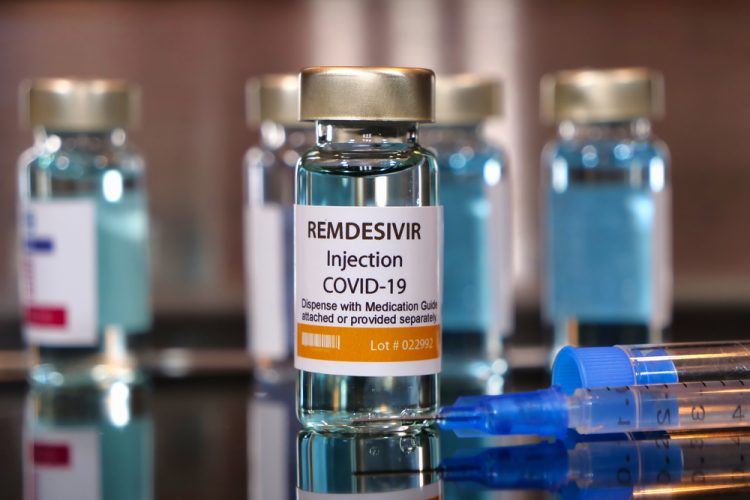Real-world evidence confirms Veklury® reduces COVID-19 mortality
Posted: 22 June 2021 | Hannah Balfour (European Pharmaceutical Review) | No comments yet
New real-world analyses demonstrate Veklury® (remdesivir) reduces mortality and increases likelihood of discharge in hospitalised COVID-19 patients.


Three real-world analyses show that in patients hospitalised with COVID-19, Veklury® (remdesivir) significantly lowers the risk for mortality and significantly increased likelihood of discharge from the hospital by Day 28, compared with matched controls. The data from 98,654 patients hospitalised with COVID-19 will be presented by Gilead Sciences Inc. will be presented at the World Microbe Forum (WMF).
Two of the studies are retrospective and observed treatment trends and outcomes in the US from the HealthVerity and Premier Healthcare databases. A third analysis compared clinical outcomes in patients receiving a 10-day treatment course of Veklury in the extension phase of the global, open-label SIMPLE-Severe study with patients receiving standard of care in a real-world retrospective longitudinal cohort study. Real-world evidence (RWE) analyses of Veklury from other sources are ongoing and may vary in their results or conclusions.
“Clinical trials help us understand the efficacy and safety profile of a treatment, but their size can limit our ability to assess all potential aspects of a treatment’s effect due to low event rates in the trials. Large real-world datasets with greater sample sizes and robust methodologies can be helpful to assess treatment effects in both the overall patient population and in clinically relevant subsets of patients,” commented Dr Robert Gottlieb, Cardiologist at Baylor University Medical Center and Baylor Scott & White Research Institute, both US. “These real-world analyses provide clinicians with additional data on the efficacy of remdesivir (Veklury) in patients hospitalised with COVID-19, including its effect on mortality and likelihood of discharge from the hospital.”
HealthVerity Analysis
This retrospective, real-world comparative analysis assessed mortality and likelihood of discharge in hospitalised COVID-19 patients who were treated with Veklury (n=24,856) versus matched controls (n=24,856) between 1 May 2020 and 3 May 2021 using US-based claims data from HealthVerity.
This analysis found that in the overall population, patients receiving Veklury had a statistically significant 23 percent lower mortality risk compared with controls (, regardless of baseline oxygen requirement. Those treated with a full five-day course of Veklury had a significantly greater likelihood of discharge by Day 28, compared with controls. This result was most pronounced in patients with lower oxygen requirements at baseline.
Premier Analysis
This retrospective, real-world comparative analysis of data from the Premier Healthcare Database assessed mortality in hospitalised patients who were treated with Veklury (n=28,855) versus matched patients who were not (n=16,687) between August and November 2020.
In this analysis, patients overall who were treated with Veklury had a significantly lower risk of mortality both at Day 14 (Hazard Ratio [HR]: 0.76) and at Day 28 (HR: 0.89) compared with patients who did not receive Veklury. Patients who were treated with Veklury and received either no oxygen (HR: 0.69), low-flow oxygen (HR: 0.68) or invasive mechanical ventilation/ECMO (HR: 0.70) at baseline had a significantly lower risk of 14-day mortality. A significant reduction in mortality was also noted at 28 days for these same groups of patients, no oxygen (HR: 0.80), low-flow oxygen (HR: 0.77) or invasive mechanical ventilation/ECMO (HR: 0.81).
SIMPLE-Severe Analysis
The SIMPLE-Severe study was a randomised, open-label, multi-centre, Phase III study in hospitalised adult patients with severe COVID-19 (oxygen saturation of ≤94 percent on room air or receiving supplemental oxygen and radiological evidence of pneumonia. The retrospective real-world analysis compared mortality outcomes of hospitalised patients with COVID-19 who received Veklury in the open-label extension phase of the SIMPLE-Severe study (n=1,974) versus propensity-score weighted patients from a real-world retrospective longitudinal cohort study of hospitalised patients with COVID-19 who were not treated with Veklury (n=1,426).
This analysis found that in the overall population, treatment with Veklury was associated with a statistically significant 54 percent lower mortality risk at 28 days versus those not treated with Veklury, regardless of a patient’s baseline oxygen requirements (HR: 0.46). Patients who completed a full 10-day course of Veklury had a significantly shorter time to discharge within 28 days compared with those who did not receive Veklury (HR: 1.64); the result for time to discharge was not significant for patients receiving invasive mechanical ventilation or ECMO at baseline (HR: 0.92).
ACTT-1
The global, randomised, double-blind, placebo-controlled, Phase III clinical trial ACTT-1 (NTC04280705) evaluated the efficacy and safety of a 10-day treatment course of Veklury versus placebo in 1,063 hospitalised adult patients with mild, moderate or severe COVID-19 who also were receiving treatment with standard of care. The primary outcome measure was time to recovery within 29 days after randomisation; overall mortality was a prespecified secondary endpoint.
In the trial, there was a statistically insignificant trend toward reduced mortality at Day 29; 11 percent versus 15 percent, in Veklury-treated patients (n=541) compared with placebo (n=521) in the overall study population. Given the range of disease severity in the overall study population, a post-hoc analysis with no adjustment for multiple testing was conducted to determine whether there were differences in mortality based on patients’ baseline clinical status. In this analysis, patients requiring low-flow oxygen at baseline who received Veklury achieved a statistically significant 70 percent reduction in mortality at Day 29 (four percent versus 13 percent). The difference in mortality in other subgroups based on baseline clinical status was not statistically significant.
Study results and additional mortality data from a post-hoc analysis were published in the New England Journal of Medicine in October 2020 and have been previously presented.
Related topics
Clinical Trials, Drug Development, Drug Safety, Research & Development (R&D), Therapeutics, Viruses
Related organisations
Baylor Scott & White Research Institute, Baylor University Medical Center, Gilead Sciences Inc









